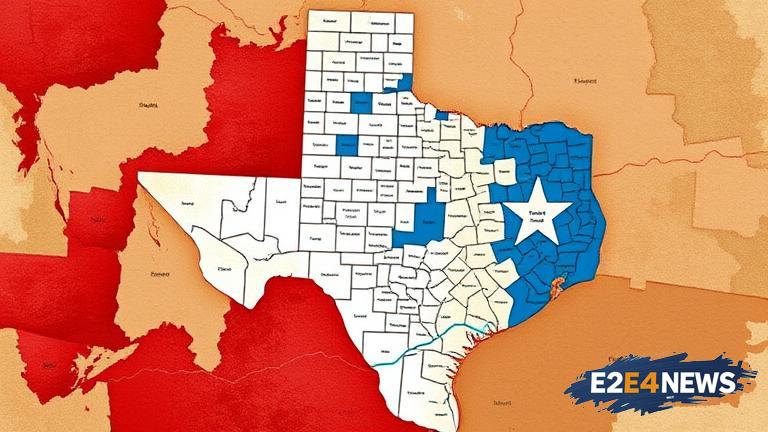In a dramatic turn of events, Texas Democrats have fled the state to prevent Republicans from passing a redistricting bill that could significantly impact the state’s electoral landscape. The move has sparked a political standoff, with Republicans accusing Democrats of abandoning their duties and Democrats arguing that they are fighting to protect the rights of minority voters. The redistricting bill, which is aimed at redrawing the state’s congressional and legislative districts, has been a source of contention between the two parties. Democrats claim that the bill is designed to disenfranchise minority voters and cement Republican control over the state’s politics. By leaving the state, Democrats are denying Republicans the quorum needed to pass the bill, effectively blocking the legislation. The move is seen as a last-ditch effort by Democrats to prevent the bill from becoming law. The Texas Legislature is currently in a special session, called by Governor Greg Abbott to address the redistricting issue. However, Democrats have refused to participate in the session, citing concerns over the bill’s impact on minority voters. The bill has been criticized for its potential to reduce the number of minority-majority districts in the state, which could limit the voting power of minority communities. Democrats have also argued that the bill is an attempt by Republicans to gerrymander the state’s districts, manipulating the electoral map to their advantage. The move by Democrats has been met with criticism from Republicans, who accuse them of abandoning their duties and neglecting their responsibilities to their constituents. However, Democrats argue that they are fighting to protect the rights of their constituents and ensure that the state’s electoral system is fair and representative. The standoff has sparked a national debate over voting rights and the role of politics in shaping the electoral landscape. The move by Texas Democrats has also drawn attention to the issue of gerrymandering, which has become a major concern in recent years. The practice of manipulating electoral districts for political gain has been criticized for undermining the integrity of the electoral system and disenfranchising certain groups of voters. The Texas Democrats’ move has been seen as a bold attempt to challenge the Republican-dominated Legislature and protect the rights of minority voters. However, it remains to be seen whether their efforts will be successful in blocking the redistricting bill. The situation is ongoing, with Democrats remaining outside the state and Republicans attempting to find ways to pass the bill. The outcome of the standoff will have significant implications for the state’s electoral landscape and the balance of power in the Texas Legislature. The move by Texas Democrats has also highlighted the deepening partisan divide in the state, with both parties dug in and refusing to compromise. The situation has sparked concerns over the potential for further polarization and gridlock in the state’s politics. As the standoff continues, it remains to be seen whether a resolution can be found that addresses the concerns of both parties and ensures that the state’s electoral system is fair and representative. The Texas Democrats’ move has been praised by some as a courageous stand against Republican efforts to manipulate the electoral system, while others have criticized it as a partisan stunt. Regardless of the outcome, the situation has highlighted the importance of protecting voting rights and ensuring that the electoral system is fair and representative of all citizens.
